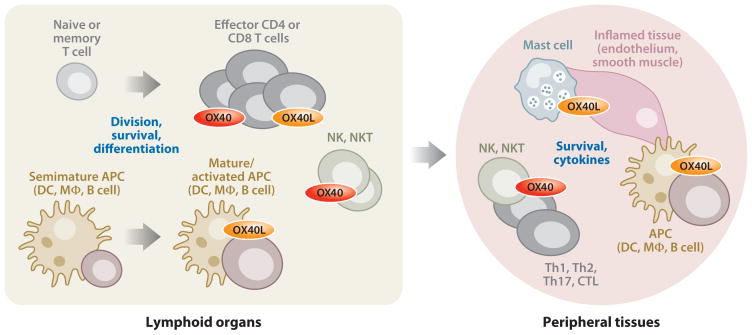Figure 2.
OX40-OX40L interactions regulate functional activity of effector CD4 and CD8 T cells, NK cells, and NKT cells. OX40 is not expressed on naive or memory CD4 or CD8 T cells but is induced after antigen recognition. Similarly, OX40L is inducible on professional APCs (DCs, macrophages, B cells) after they mature and receive activating stimuli. The interaction of these cell types primarily allows OX40 to engage its signaling pathways, targeting division and survival proteins in the activated T cells, which leads to clonal expansion and the development of high frequencies of effector cells. OX40 may also regulate differentiation in the T cells depending on other inflammatory factors. Reverse signaling through OX40L to the APC most likely also contributes to these processes through inducing inflammatory cytokines. Interactions between NK cells and T cells or APCs, or between NKT cells and APCs, can also involve OX40-OX40L interactions, promoting direct cellular activity to NK and NKT cells and perhaps survival signals, as well as provide cytokine feedback loops that will further augment T cell priming. Within inflamed tissue, varied cell types have the potential to express OX40L, including activated endothelium, smooth muscle, and innate cells such as mast cells. Through additional bi-directional interactions with OX40, this OX40L likely potentiates local tissue inflammation by maintaining the effector cells and leading to production of proinflammatory events in the tissue-resident cells.

